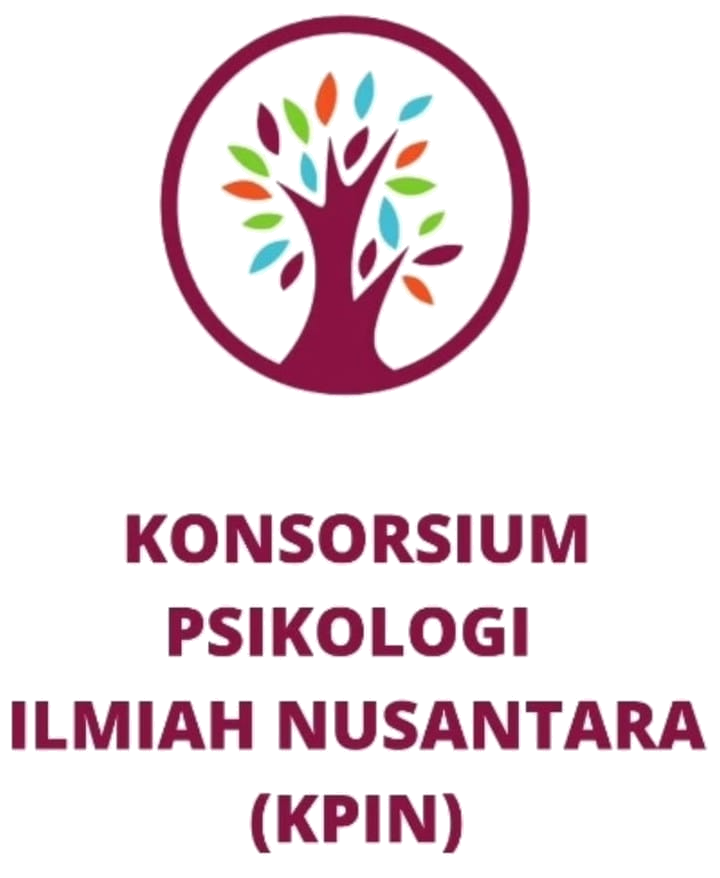Gambaran Pembentukan Identitas Agama pada Religious Disbeliever Usia Emerging Adult
DOI:
https://doi.org/10.35814/mindset.v9i01.723Keywords:
emerging adult, religious disbeliever, exploration, commitmentAbstract
Emerging adulthood is a phase of life stages that provide opportunities in exploring identity before entering adulthood phase. One of thing explored in this transition phase is religious belief. As the doubt increases of the emerging adults towards religious belief that they learned from their parents, it has led them to religious disbeliever. The aim of this research is to see the process of exploration in identity to become a religious disbeliever. Basic descriptive qualitative study method is used to approach the objectives of this research by using interview and observation methods in collecting data. Subject of interview are consisting of two religious disbeliever who were a muslim. The result of this research showed the process of identity forming by the subject not only seen by neither exploration process nor commitment achievement, but also by external figure such as parent and social circle of friends.
References
Arnett, Jeffrey J. & Jensen, Lene Arnett. (2002). A Congregation of One: Individualized Religious Beliefs Among Emerging Adults. Journal of Adolescent Research, 17 (5), 451-467.
Arnett, Jeffrey Jensen. (2000). Emerging Adulthood: A Theory of Development From the Late Teens Through the Twenties. American Psychological Association, 55 (5), 469-480. Diunduh dari http://www.jeffreyarnett.com/articles/ARNETT_Emerging_Adulthood_theory.pdf
Arnett, Jeffrey Jensen. (2013). Adolescence and Emerging Adult, A Cultural Approach (5th ed). Boston: Pearson.
Arnett, Jeffrey Jensen. (2015). Emerging Adulthood, The Winding Road from The Late Teens Through the Twenties (2nd ed). Oxford: Oxford University Press.
Barry, Carolyn McNamara, Nelson Larry, Davarya, Sahar, & Urry, Shirene. (2010). Religiosity and Spirituality during Transition to Adulthood. International Journal of Behavioral Development, 34, 311. DOI: 10.1177/0165025409350964.
Baumrind, Diana. (1991). The Influence of Parenting Style on Adolescent Competence and Substance Use. Journal of Early Adolescence, 11 (1), 56-95.
Camp, Debbie Van., Barden, Jamie.,& Sloan, Lloyd. (2016). Social and Individual Religious Orientations Exist Within Both Instrinsic and Extrinsic Religiosity. Archive for the Psychology of Religion. DOI: 10.1163/15736121-12341316.
Erikson, Erik H. (1950). Childhood and Society. London : Paladin Grafton Books.
Erikson, Erik H. (1968). Identity Youth and Crisis. New York: W. W. Norton and Company.
Hallahmi, Benjamin Beit., & Argyle, Michael. (1997). The Psychology of Religious Behaviour, Belief and Experience. London: Routledge.
Hasanah, Uswatun. (2013). Pembentukan Identitas Diri dan Gambaran Diri pada Remaja Putri Bertato di Samarinda. E-journal Psikologi, 1 (2), 177-186. Di unduh dari http://ejournal.psikologi.fisip-unmul.ac.id/site/wp-content/uploads/2013/10/jurnal%20bener%20pdf%20(10-05-13-02-23-29).pdf
Hurlock, Elizabeth B. (2003). Psikologi Perkembangan Suatu Pendekatan Sepanjang Rentang Kehidupan (5th ed), [Development Psychology A Life-Span Approach (5th Ed)]. Jakarta: Penerbit Erlangga.
Klimstra, T.A., III, W. W. H., Raaijmakers, Q. A. W., Branje, S. J. T & Meeus, W. H. J. (2010). Identity Formation in Adolescence: Change or Stability?. J Youth Adolescence, 39, 150-162. DOI: 10.1007/s10964-009-9401-4.
Marcia, James E. (1993). The Ego Identity Status Approach to Ego Identity. Dalam Marcia, J. E., Waterman, B. A., Matteson, D. R., Archer, S. L., & Orlofsky, J. L (Eds.), Ego Identity : A Handbook for Psychological Research (Hal. 3 – 21).
Norenzayan, Ara., & Gervais, Will M. (2013). The Origins of Religious Disbelief. Trends in Cognitive Sciences, 17 (1). DOI: 10.1016/j.tics.2012.11.006.
Paloutzian, Raymond F. (1996). Invitation to the Psychology of Religion (2nd, Ed). USA: A Simon & Schuister Company.
Samuolis, Jessica., Layburn, Kiera., & Schiaffino, Kathleen M. (2001). Identity Development and Attchment to Parents in College Students. Journal of Youth and Adolescence, 30 (3). DOI:https://doi.org/10.1023/A:1010448313516.
Sarwono, Sarlito W. (2015). Psikologi Remaja. Jakarta: Rajawali Pers.
Schellenberg, J.L. (2005). Prolegomena to a Philosophy of Religion. USA: Cornell University.
Waterman, Alan S. (1993). Developmental Perspectives on Indentity Formation: From Adolescence to Adulthood. Dalam Marcia, J. E., Waterman, B. A., Matteson, D. R., Archer, S. L., & Orlofsky, J. L (Eds.), Ego Identity : A Handbook for Psychological Research (Hal. 42 – 67).
Waterman, Alan S. (1993). Overview of The Identity Status Scoring Criteria. Dalam Marcia, J. E., Waterman, B. A., Matteson, D. R., Archer, S. L., & Orlofsky, J. L (Eds.), Ego Identity : A Handbook for Psychological Research (Hal. 156 – 176).












